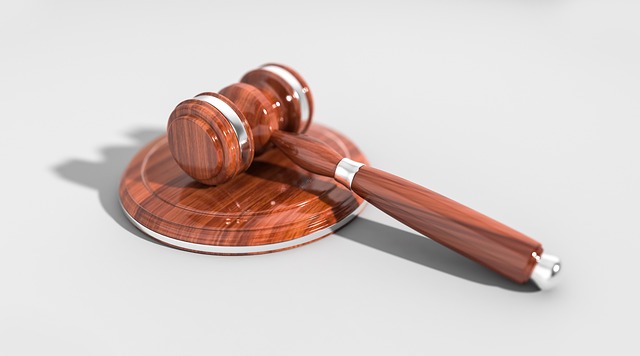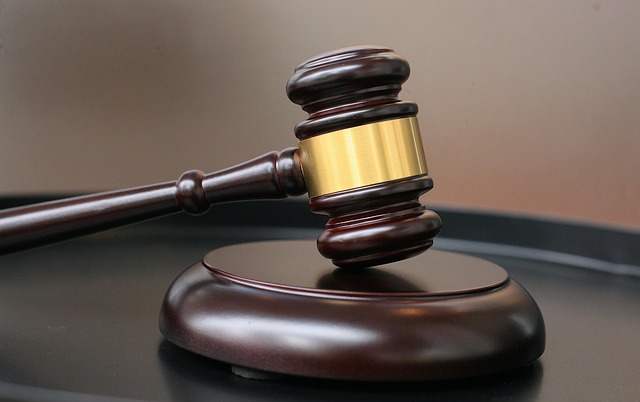Whistleblower protection laws are essential tools for resolving disputes related to medical regulations and compliance within healthcare industries. These laws encourage transparency by safeguarding individuals who expose illegal practices, such as fraudulent billing or substandard patient care. Whistleblowers play a critical role in uncovering violations, leading to successful outcomes like defense verdicts and charge dismissals. Despite challenges, their actions promote public health and are supported by philanthropic and political communities. Effective dispute resolution in medical regulation cases requires strategic approaches, early case assessment, settlement negotiations, and leveraging Alternative Dispute Resolution (ADR) methods for mutually acceptable resolutions while minimizing legal repercussions.
“Whistleblower Protection Lawsuits: A Powerful Tool in Resolving Disputes within Medical Regulations
In the complex landscape of healthcare, ensuring ethical practices and accountability is paramount. This article explores the crucial role of whistleblower protection lawsuits in addressing medical regulation disputes. We delve into the legal framework that safeguards whistleblowers, highlighting their significance in uncovering violations. Understanding these laws is essential for navigating medical disputes, offering a path towards justice and reform. By examining strategies for resolving conflicts, we empower stakeholders to uphold ethical standards in healthcare.”
- Understanding Whistleblower Protection Laws: A Foundation for Medical Disputes
- The Role of Whistleblowers in Uncovering Medical Regulation Violations
- Legal Protections for Whistleblowers in Healthcare Industry
- Common Challenges Faced by Whistleblowers in Medical Regulation Cases
- Effective Strategies for Resolving Disputes Through Whistleblower Protection Lawsuits
Understanding Whistleblower Protection Laws: A Foundation for Medical Disputes

Whistleblower protection laws play a pivotal role in fostering integrity within various industries, including healthcare. These legal frameworks are designed to safeguard individuals who expose illegal or unethical practices within their respective organizations. When it comes to medical disputes, understanding these protections is essential for resolving issues related to regulations and compliance.
By implementing whistleblower provisions, healthcare institutions establish a culture of transparency and accountability. This encourages employees to report concerns without fear of retaliation, ensuring that potential violations of medical regulations are addressed promptly. For instance, if an individual uncovers fraudulent billing practices or substandard patient care within his or her healthcare facility, the law provides a mechanism for safe disclosure, protecting the whistleblower from adverse consequences while facilitating investigations into such disputes.
The Role of Whistleblowers in Uncovering Medical Regulation Violations

Whistleblowers play a pivotal role in uncovering and exposing medical regulation violations that might otherwise remain hidden. They are individuals who, driven by a sense of public service or personal ethics, bring to light unethical practices, fraudulent activities, or safety hazards within healthcare institutions. These actions often lead to crucial investigations, ensuring accountability and safeguarding patient welfare. By stepping forward, whistleblowers contribute significantly to resolving disputes in medical regulations, fostering transparency, and promoting ethical standards.
In many cases, whistleblowers face significant challenges as they navigate complex legal landscapes. However, their efforts have resulted in numerous winning challenging defense verdicts, where the truth prevails. Moreover, the act of blowing the whistle can lead to complete dismissal of all charges against them, especially when their intentions are purely altruistic and aimed at serving the public interest. This support from both the philanthropic and political communities underscores the importance of protecting whistleblowers who dare to speak up against wrongdoing in the medical sector.
Legal Protections for Whistleblowers in Healthcare Industry

Whistleblower protection laws play a crucial role in ensuring transparency within the healthcare industry. These legal protections are designed to safeguard individuals who expose unethical practices, fraud, or violations of medical regulations. When resolving disputes related to these regulations, whistleblowers are entitled to specific rights and safeguards. Across the country, laws have been enacted to protect them throughout all stages of the investigative and enforcement process.
The healthcare industry often involves complex systems and procedures, making it easier for irregularities to go unnoticed. Whistleblowers take on a vital role in uncovering these issues, which can range from billing irregularities to patient safety concerns. For his clients, legal protections ensure that they can come forward without fear of retaliation, allowing them to play an essential part in upholding medical standards and protecting the public.
Common Challenges Faced by Whistleblowers in Medical Regulation Cases

Whistleblowers in medical regulation cases often face significant challenges when coming forward with information that could expose unethical practices or violations. These disputes, known as high-stakes cases, can be complex and emotionally taxing for individuals who are usually the first to blow the whistle on systemic issues within healthcare institutions. One of the primary hurdles is the potential risk to their professional reputation and personal safety. Whistleblowers may face backlash from employers, peers, or even the public, leading to a complete dismissal of all charges against the institution, which can undermine the initial intent of the disclosure.
Moreover, navigating legal systems that deal with white-collar and economic crimes is another common struggle. Medical regulation cases often involve intricate financial details, contracts, and regulatory guidelines, making it crucial for whistleblowers to have a comprehensive understanding of these aspects. The complexity increases when seeking justice, as proving intent and damages can be challenging. Despite these challenges, addressing these disputes in medical regulations is essential to uphold integrity within the healthcare sector and protect patients from potential harm.
Effective Strategies for Resolving Disputes Through Whistleblower Protection Lawsuits

When faced with whistleblower protection lawsuits, effective dispute resolution requires a strategic approach tailored to the unique dynamics of these cases. One key strategy involves early case assessment and settlement negotiations. By carefully examining the facts and legal merits, parties can identify potential areas of agreement and avoid lengthy and costly litigation. This is particularly crucial in the context of medical regulations, where disputes often center around complex scientific evidence and regulatory interpretations.
Additionally, leveraging alternative dispute resolution (ADR) methods such as mediation and arbitration can provide a more efficient and collaborative platform for resolving disagreements. ADR allows for flexible procedures that cater to the specific needs of whistleblower cases, fostering dialogue between corporate and individual clients, as well as within philanthropic and political communities. This inclusive approach can lead to mutually acceptable resolutions while preserving relationships and minimizing legal repercussions.
Whistleblower protection lawsuits play a pivotal role in resolving disputes within medical regulations, empowering individuals to expose violations without fear of retaliation. By understanding the legal protections and strategies available, whistleblowers can effectively navigate complex healthcare industry disputes. This article has provided insights into the crucial role whistleblowers play, the challenges they face, and the essential legal framework that supports them. Embracing these principles fosters a culture of accountability, ensuring medical practices adhere to ethical standards and regulatory compliance.






